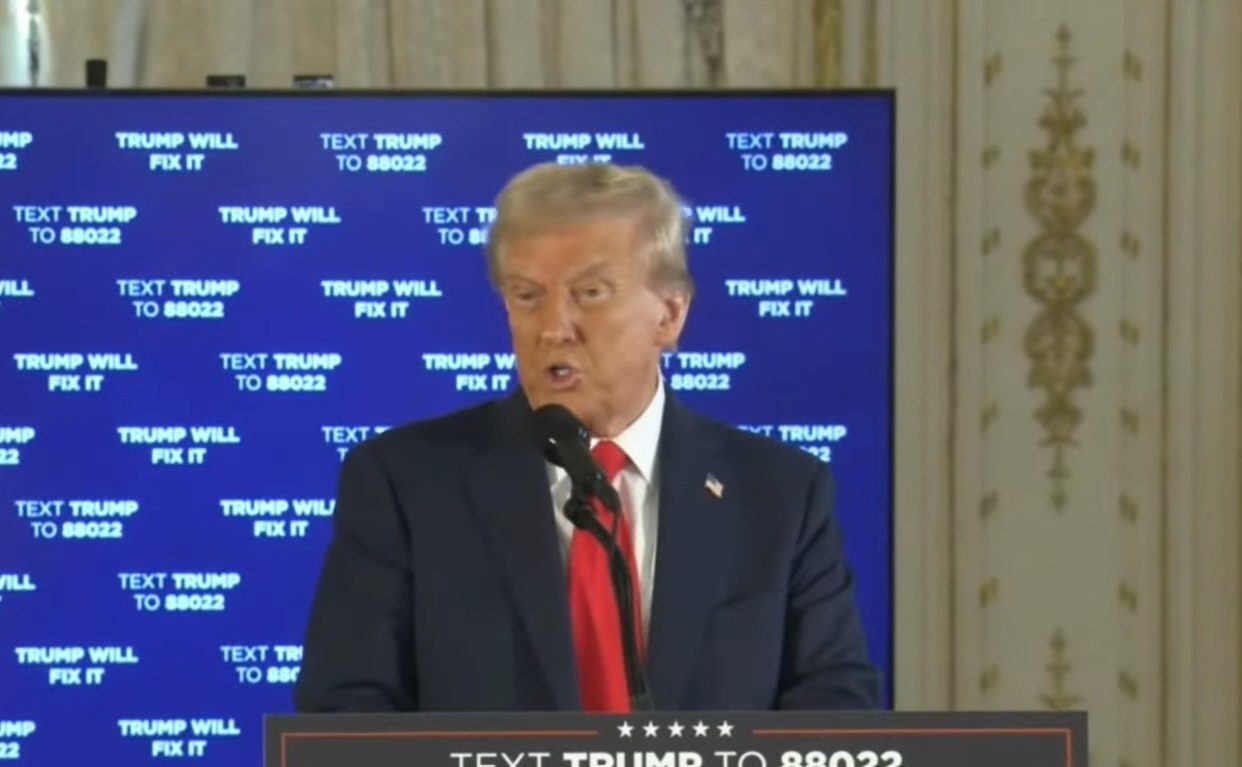At a Mar-a-Lago press conference, President Trump announced a bold new policy aimed at hitting criminal gangs and drug cartels right where it hurts: their wallets. Trump revealed that his administration, if re-elected, would “seize the assets of criminal gangs and drug cartels” to create a compensation fund dedicated to victims of migrant crime. This fund, Trump explained, would use confiscated money and property from these groups to provide restitution directly to those harmed by their criminal activities.
Trump underscored the urgent need for this initiative by inviting the mother of Kayla Hamilton, a 20-year-old woman with autism whose life was ended by an MS-13 gang member from El Salvador who entered the U.S. illegally. Hamilton’s mother spoke emotionally about her daughter’s death, criticizing the current administration for failing to enforce immigration laws that might have prevented the tragedy. “Homeland Security did not do their job. Health and Human Services did not do their job,” she said. “If they would have done their job, made that one phone call to El Salvador, my daughter would be alive today.”
Kayla Hamilton was a 20-year old girl with an autism diagnosis…allegedly raped and murdered by an MS-13 gang member from El Salvador.
Trump invited her mother to the stage at Mar-a-Lago.
“The Biden-Harris administration did not do their job.” pic.twitter.com/RAT8l08SCB
— Daniel Baldwin (@baldwin_daniel_) October 29, 2024
Trump then shared a video statement from the mother of Jocelyn Nungaray, a 12-year-old reportedly killed in Texas by two undocumented men from Venezuela, further underscoring the human cost of lax border policies.
This is the video from Trump's Mar-a-Lago press conference from the mom of Jocelyn Nungaray that CNN did not want you to see. pic.twitter.com/jcGyfWnf5v
— Carmine Sabia (@CarmineSabia) October 29, 2024
This approach to fund a restitution program through asset seizures has been used before by the federal government in fighting drug trafficking. Former New York DEA chief Ray Donovan called asset forfeiture a “powerful tool,” noting that redirecting seized assets to help victims of violent crime expands its impact beyond disrupting criminal enterprises. “This approach not only disrupts criminal organizations but also provides direct aid to those impacted by such violence,” he said.
Former DEA Special Operations chief Derek Maltz also praised the concept, stating that asset forfeiture has been a “huge success” in funding law enforcement efforts and that applying it to victims’ restitution could unite Americans in the fight against violent crime. According to Maltz, millions could be redirected from cartel assets alone, potentially creating a significant fund for victim compensation.
Trump’s policy announcement comes just a week before Election Day and underscores his tough stance on illegal immigration and crime, two pillars of his platform. With the promise to hold criminal organizations financially accountable, Trump is pushing an agenda focused on security and support for victims—particularly those who have suffered due to the failures of the current immigration system. As Election Day approaches, this bold new proposal could strike a chord with voters demanding stronger border control and justice for crime victims.


Leave a Comment